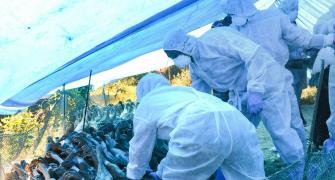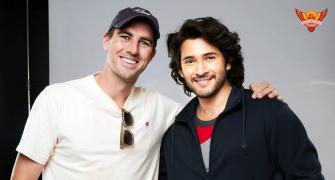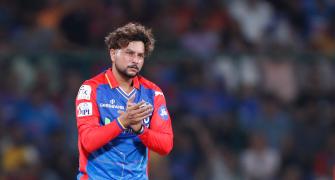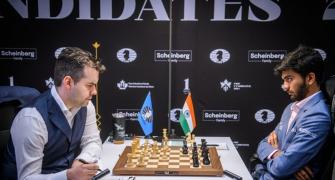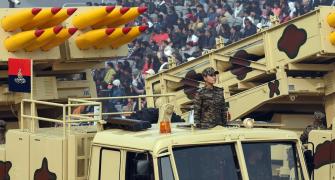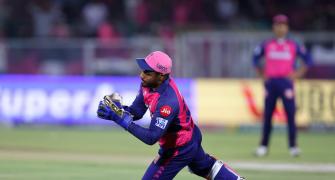In July 2000, Jack Roche --- a man who had lunched and plotted with Osama bin Laden and other top terrorist leaders--offered to provide information on the Al Qaeda to the Australian Security Intelligence Organisation, says The Los Angeles Times.
But at the time 14 months before the Sept. 11 attacks no one was interested, the paper said.
He was finally arrested in November 2002 during a sweep of Muslim radicals that followed the bombing of a nightclub in Bali, Indonesia, by the Al Qaeda's Southeast Asian affiliate, Jemaah Islamiah. The attack killed 202 people, including 88 Australians.
It was only last week that he became the first man to be convicted under Australia's new terrorist laws and sentenced to nine years in prison for conspiring with Al Qaeda leaders to blow up the Israeli Embassy in Canberra.
According to the Times, Roche telephoned Australia's intelligence agency at least thrice in 2000 to claim that he had been to Afghanistan, ate lunch with Osama bin Laden, trained in explosives and plotted with Al Qaeda leaders to carry out a bombing in Australia.
'A Muslim convert, Roche was prepared to become an informant, his attorney says, and provide information about Al Qaeda; its Southeast Asian affiliate, Jemaah Islamiah; and their goal of staging an attack in a Western country,' the article said.
'According to evidence presented in court, Australian and US authorities bungled at least six chances to learn what Roche knew, including the whereabouts of alleged terrorist mastermind Khalid Shaikh Mohammed, who, it is said, was even then plotting the Sept. 11 attacks. U.S. authorities had been trying to catch Mohammed since the mid-1990s,' the Times said.
"He had their phone numbers," it quoted Roche's lawyer Hylton Quail as saying. "He had their e-mail addresses. He knew where they lived. He knew how they worked. He was like a spy who tried to come in from the cold and found the door was locked."
Roche, now 50, says he first telephoned the US Embassy in Canberra to offer intelligence on Al Qaeda and was told to contact Australian authorities. An embassy official says Roche may have called, but the embassy has no record of it. Roche subsequently called the Australian Security Intelligence Organization three times to give information, but the agency never pursued his offer, the Times said.
Quail said Roche had been "extraordinarily cooperative" with Australian intelligence authorities - volunteering to be interviewed about his involvement with the al-Qaeda and Jemaah Islamiah, said The Australian.
'During interrogations and his trial, Roche - of Hull, England - portrayed himself as a man out of his depth in the world of international terrorism, which he'd stumbled into through contacts in Australia after he converted to Islam to help him overcome alcohol addiction,' it said.
District Court Judge Paul Healy said sentencing Roche was difficult, because there were no precedents. He set a non-parole period of four years, but taking into account time already served, Roche could be free within three years, said the Voice of America.
Prime Minister John Howard acknowledged last week that authorities had made a "very serious mistake" in turning Roche away. But he discounted suggestions that Roche's information could have helped prevent the September 11 attacks, or the Bali bombings, said the Times.


